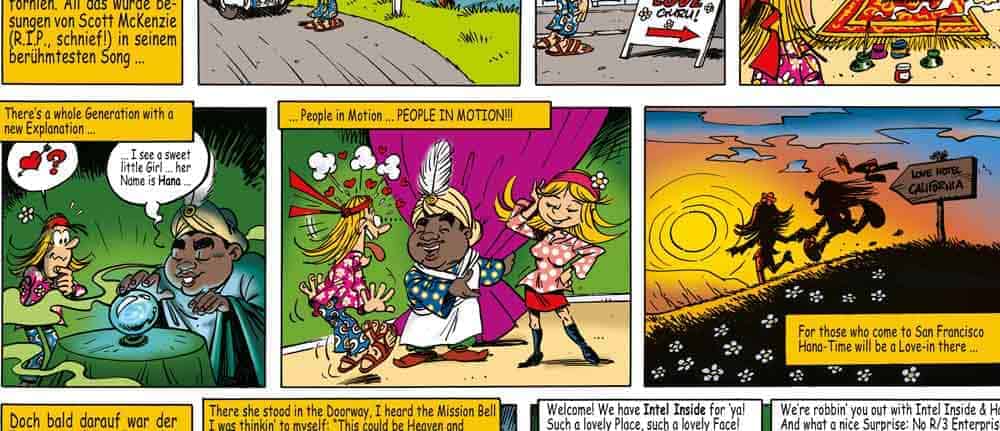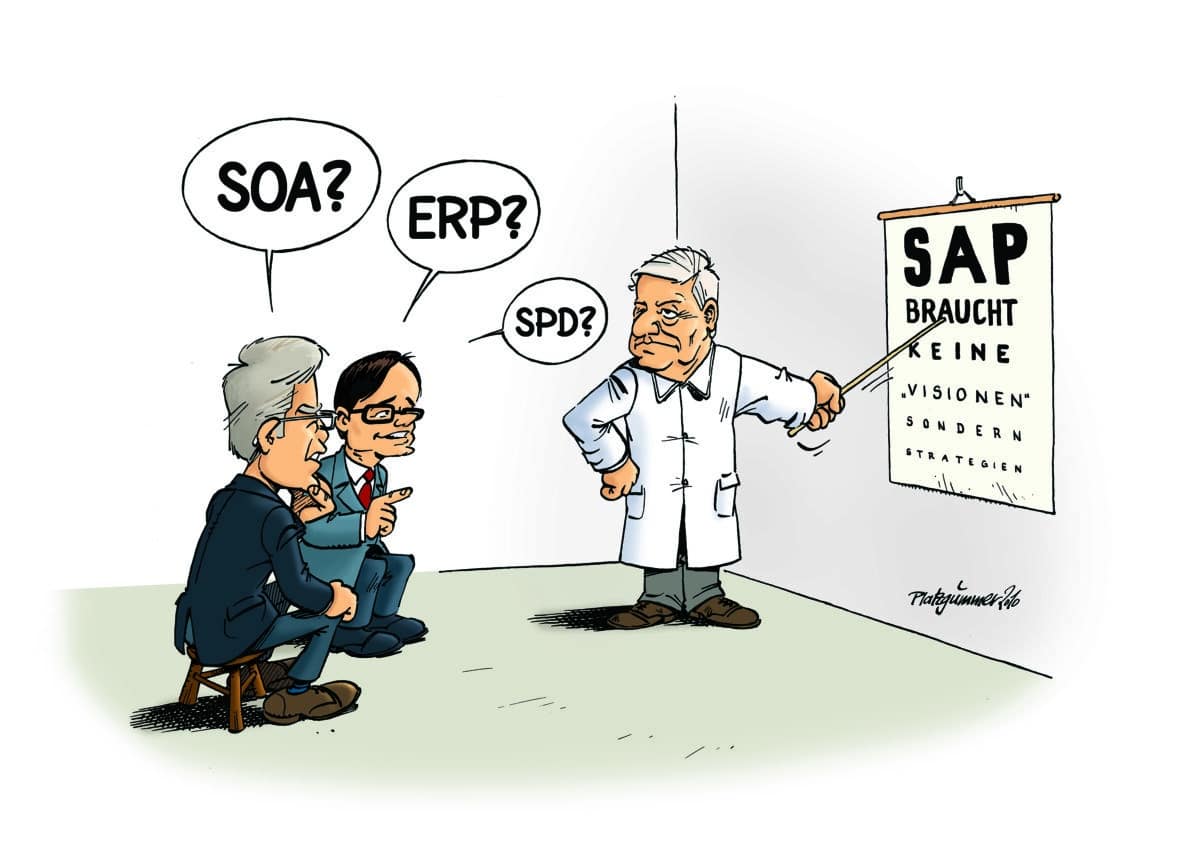SAP Visions versus Strategy


Things are currently bad at SAP. Former co-CEO Jim Hagemann Snabe left SAP early and is now celebrating success as chairman of the Siemens supervisory board. His former colleague Bill McDermott bought cloud companies indiscriminately and hoped for synergetic effects without considering his customers. SAP Supervisory Board Chairman Professor Hasso Plattner tried to put a stop to their wild msimanagement, see illustration. However, he often failed because of McDermott's charm.
SAP does not need visions, it needs strategies. The current situation at SAP owes much to Professor Hasso Plattner’s doctrine. CEO Christian Klein is doing an excellent job. At the moment, he is saving SAP from going under. One insider compared the situation to a dam that is about to collapse, already filled with cracks and holes everywhere where the water is escaping. SAP CEO Christian Klein will manage; he and the company will survive because operationally, no one can blame the young boss.
For SAP's customers and partners, the successes and the promise to keep the current ERP version S/4 Hana in maintenance until 2040 are reassuring, but not helpful. Even if the current strategy is right, the SAP community also requires a vision. Cloud computing is a technology, but neither strategy nor vision.
Anyone who has been a loyal SAP customer for the past 50 years wants to be reassured that the Executive Board and Supervisory Board are also thinking about the next 50 years. At the moment, however, SAP has no idea, no vision of how things could continue after S/4 in 2040.
Currently, anyone who chooses to implement the Hana database and the S/4 ERP system into their IT infrastructure is walking into a black hole. There is no discourse, no vision about ERP life after S/4 Hana. This lack of ideas is a great danger for the SAP community and, of course, for SAP itself.
SAP CEO Christian Klein's current strategy is a good one. The SAP share price is satisfactory. The maintenance promise until 2040 is helpful. But a vision for future ERP generations is missing. There is a lack of discourse in the SAP community about possible ERP models. Remaining mute on this matter could prove to be a huge mistake, for everyone.

In 2010, SAP had a CEO dual leadership with Bill McDermott (l.) and Jim Hagemann Snabe. Even then, Professor Hasso Plattner was checking for strategy.






